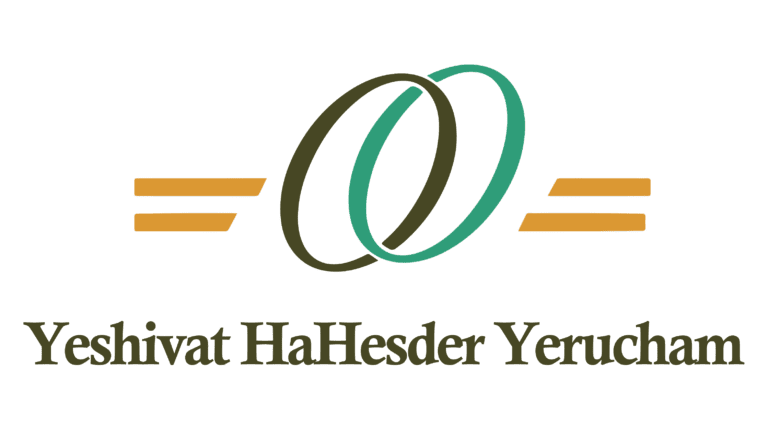Our Fallen Students
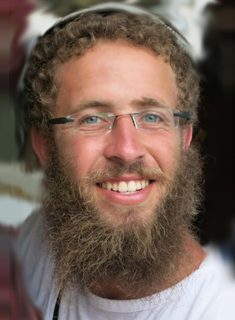
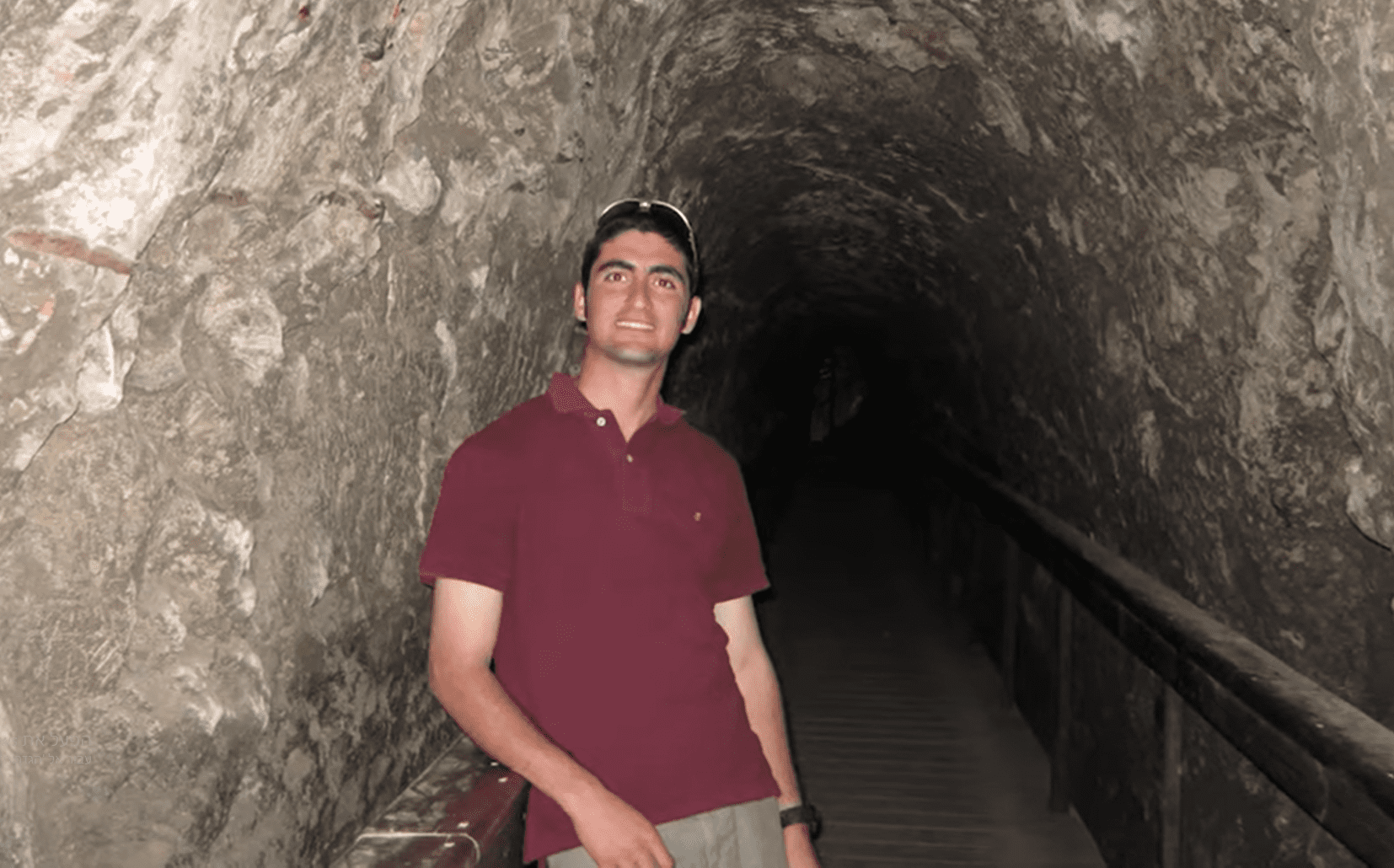
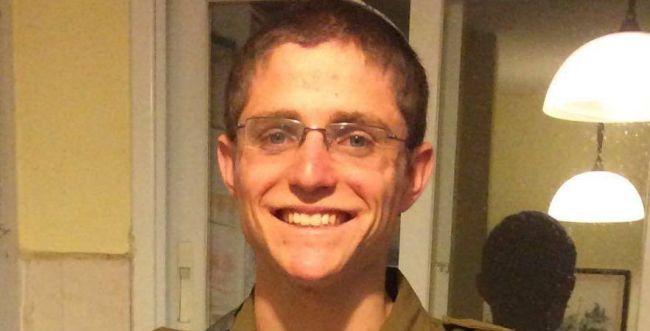
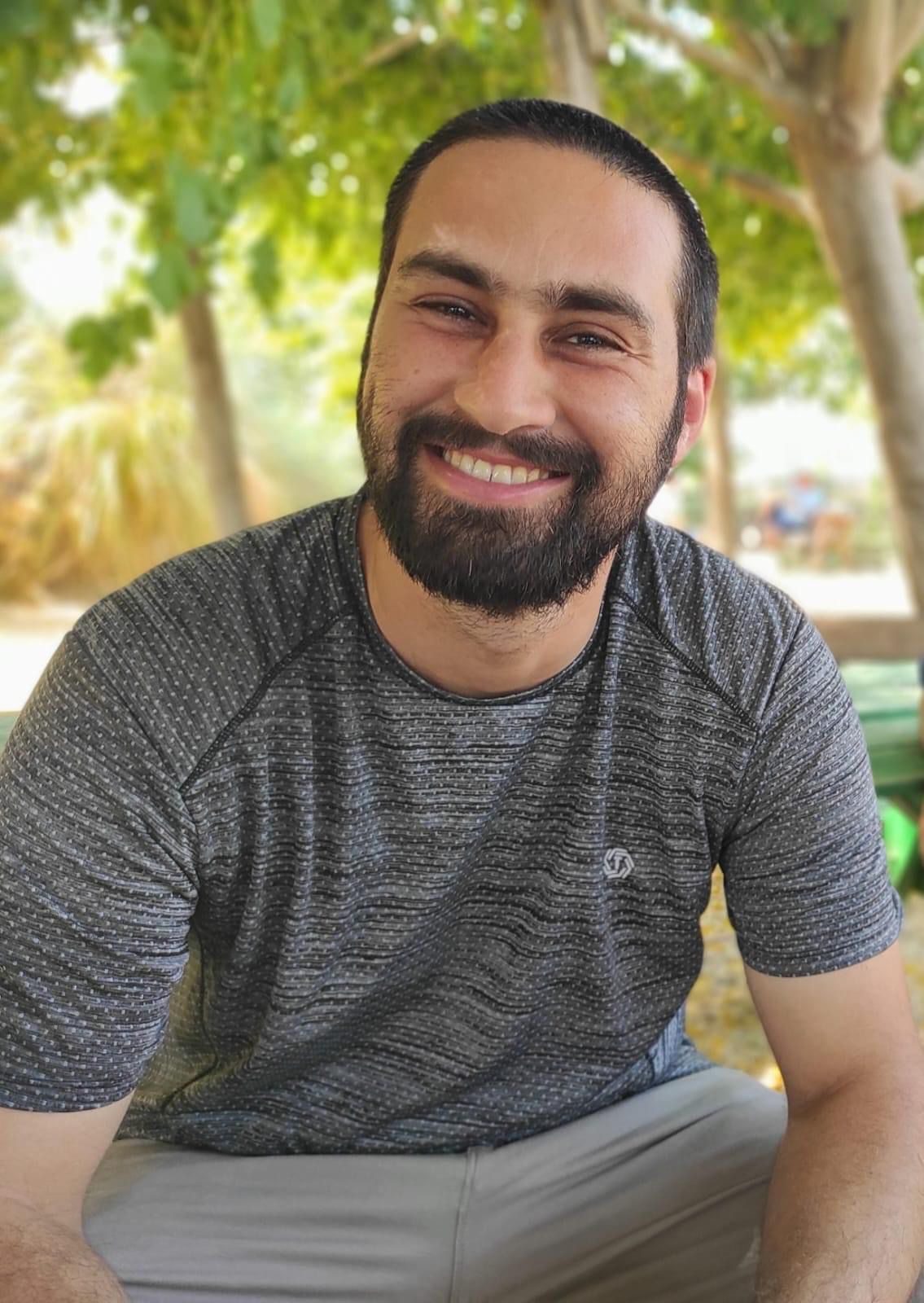
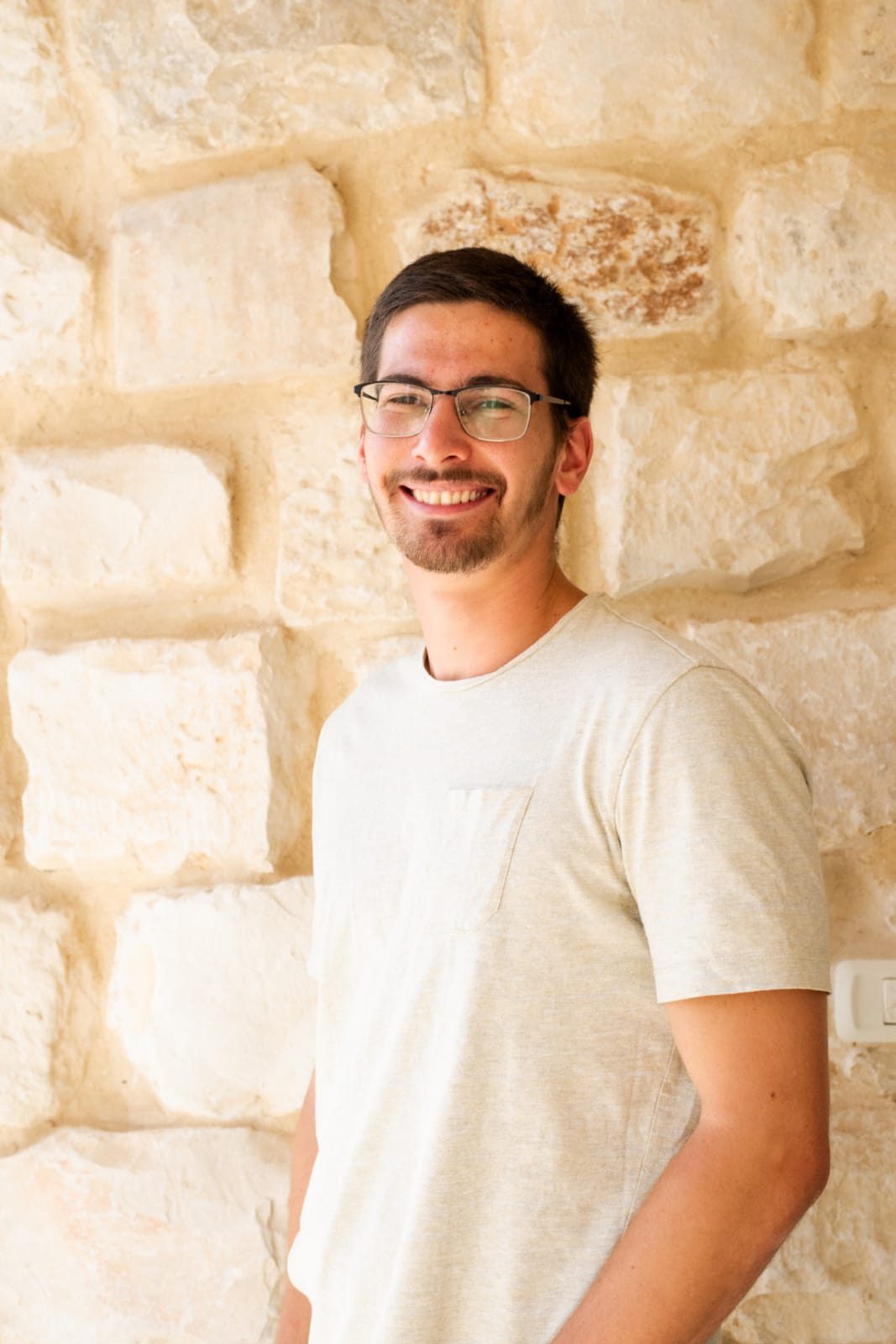
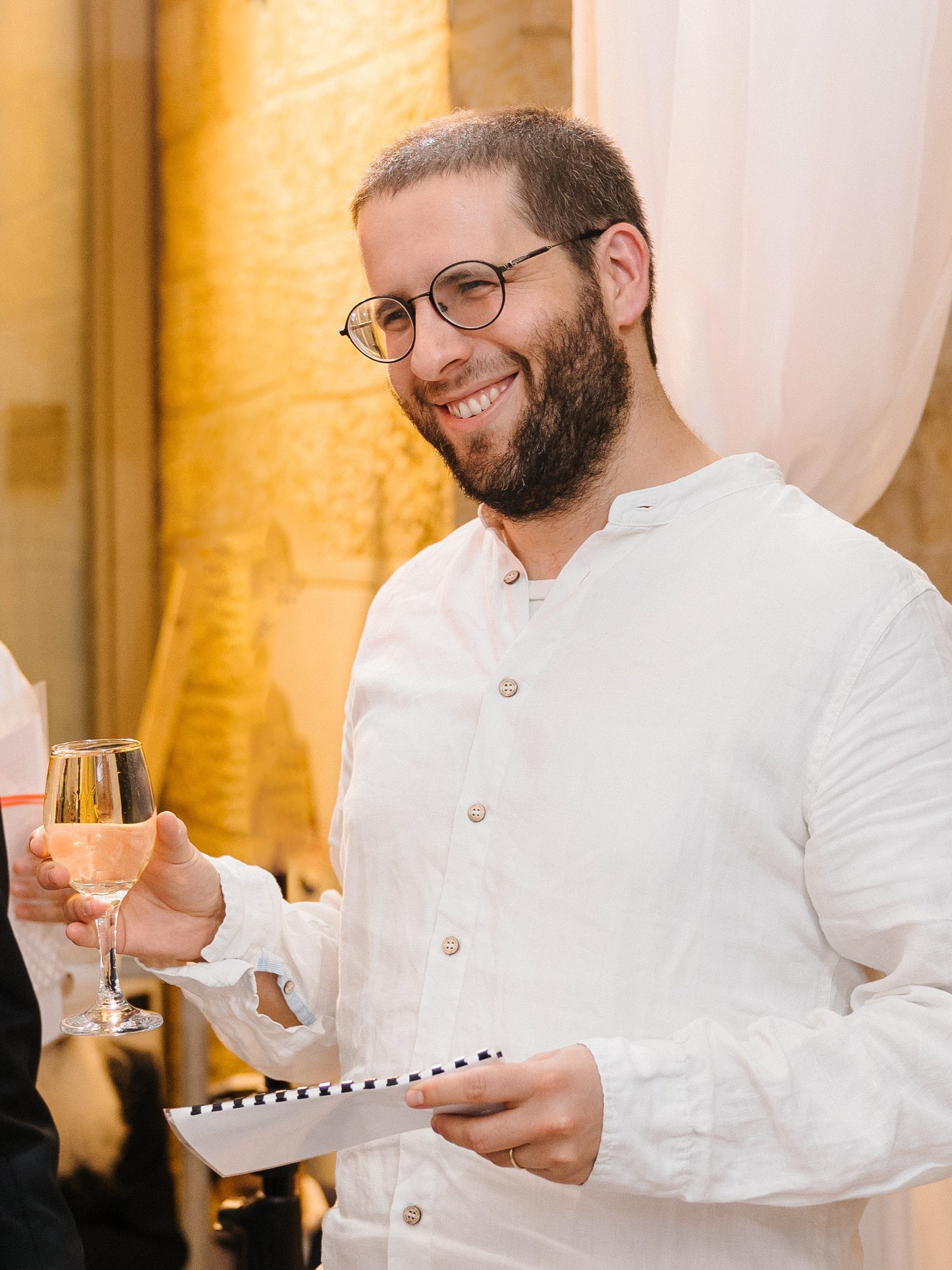
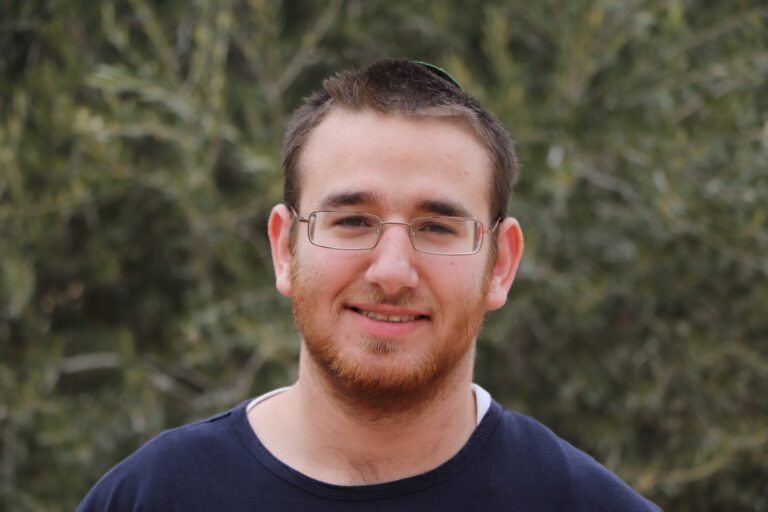
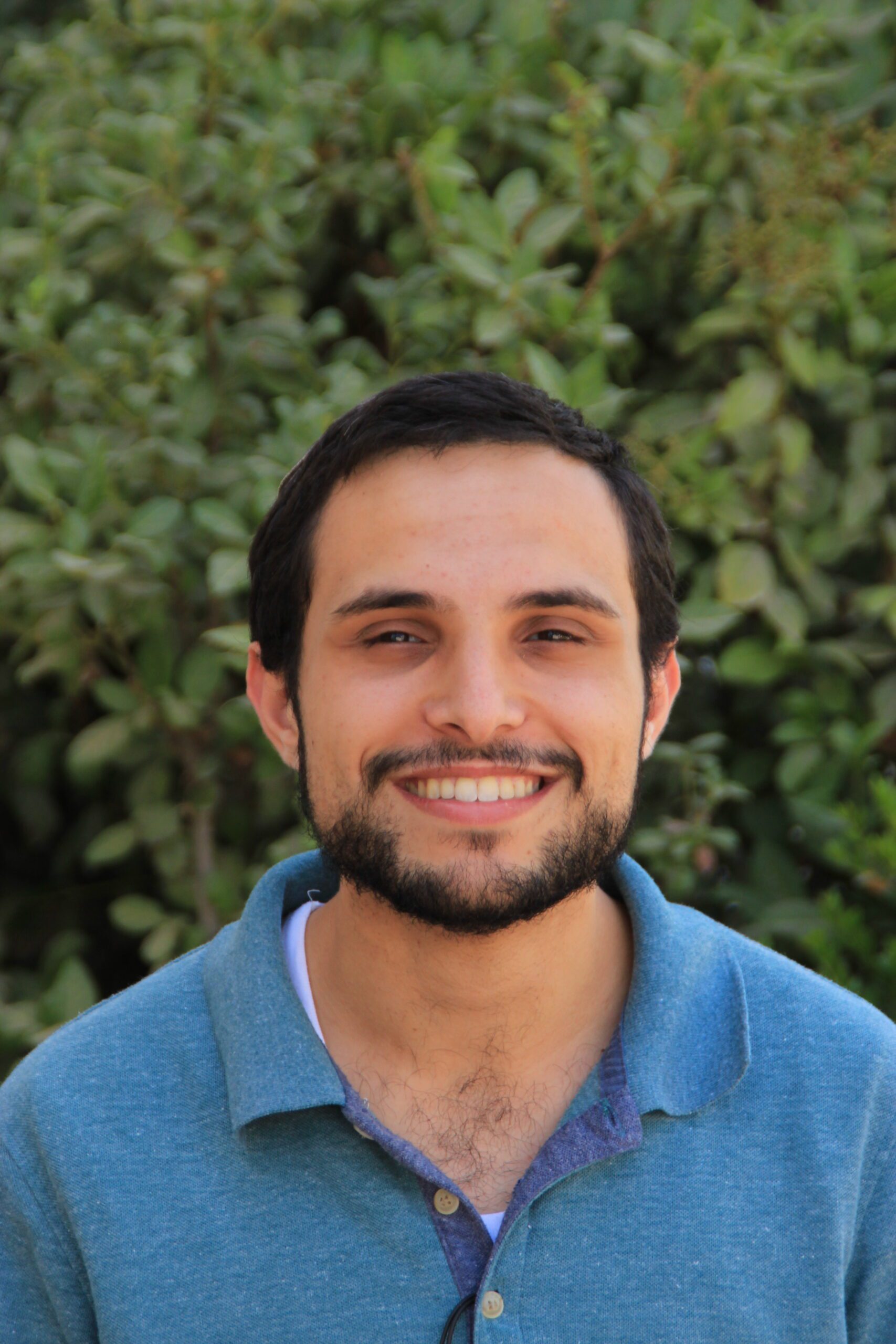
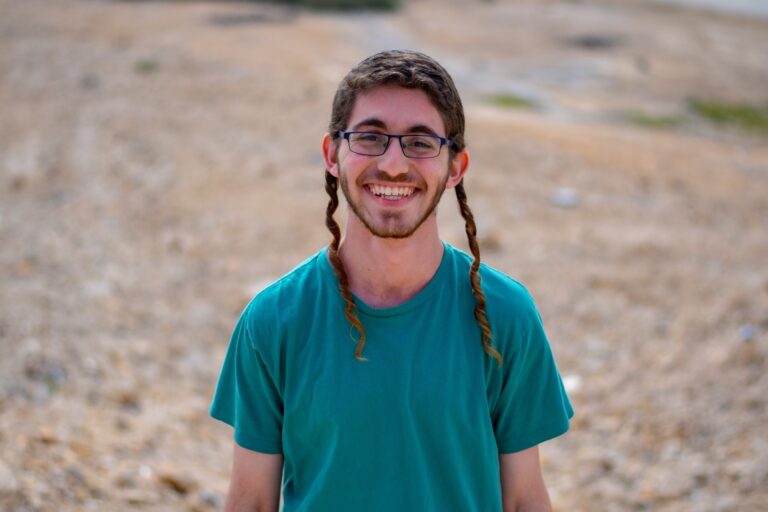
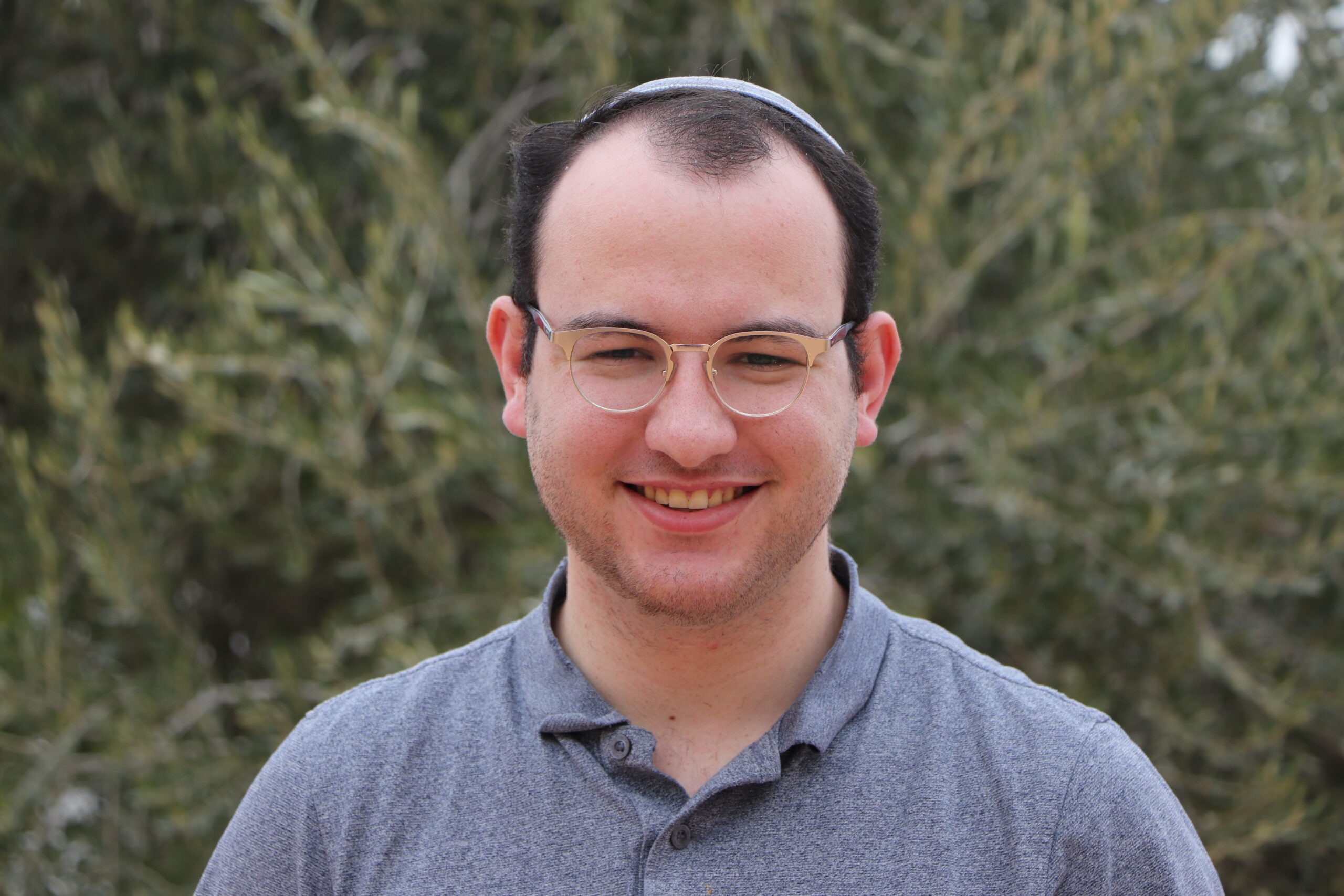
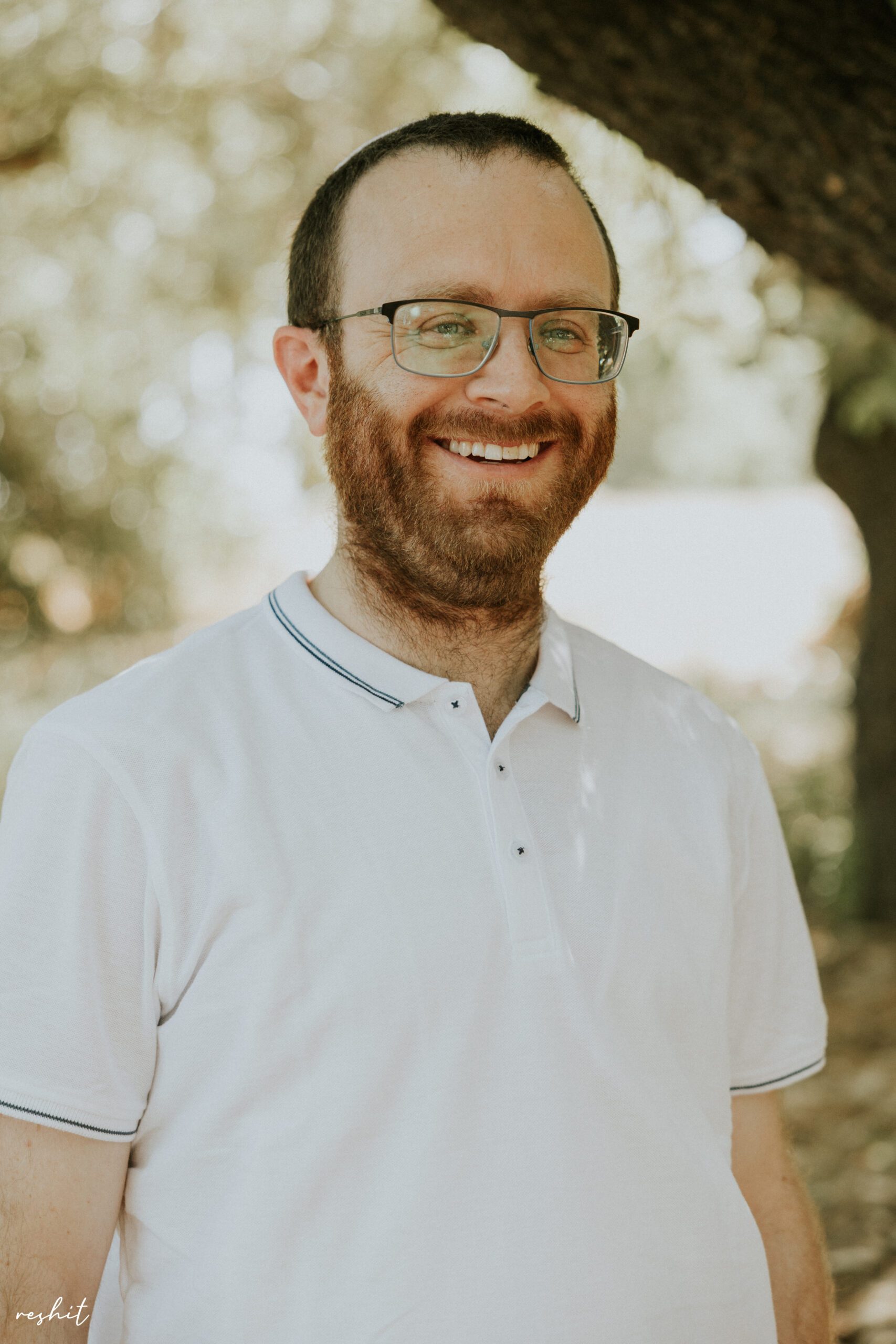
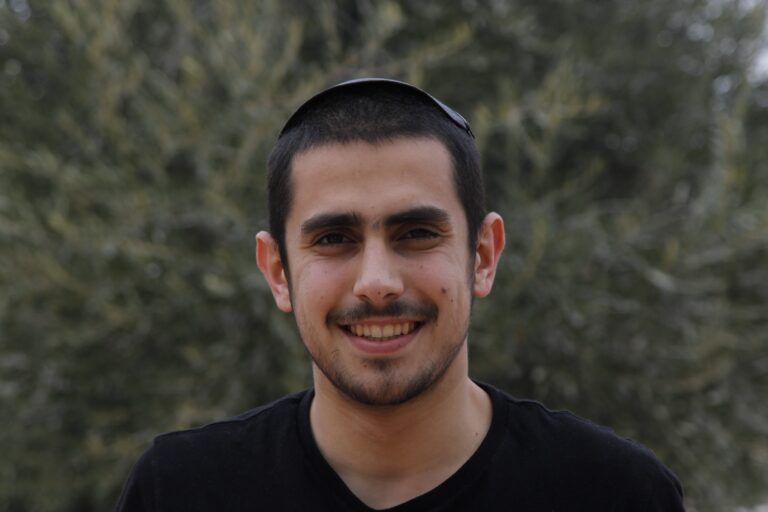
Shalom was the beloved son of Rabbi Uri and Ronit Cherki, and the beloved brother of six. He was born in 1989 and raised in Jerusalem. He studied at the Talmud Torah Morasha elementary school, and the Yeshivat Bnei Zvi high school. After his high school graduation, Shalom came to learn at the Yerucham Hesder Yeshiva.
Shalom served as a combat soldier on a Dabur patrol boat in the Israeli navy. After his military service, he transferred to a different yeshiva in Tzefat.
Shalom studied at Herzog College. He was interested in a wide variety of fields and studied history, geography, religious and secular literature, as well as astronomy.
Shalom spent a lot of time working on survival skills and getting in shape. He also worked as a youth counselor at Yeshivat Bnei Zvi and later became a tour guide. Among his many undertakings, Shalom was involved in the Israel Journey initiative for Israeli teens.
In 2015, a few hours before Yom Hashoah, Shalom was murdered at the age of 26. He was standing at a bus stop in Jerusalem when a terrorist drove his car straight into Shalom and his girlfriend at the time. His girlfriend was severely injured, but survived. Shalom was killed.
After his death, Shalom's family donated the cover used on the bima on Rosh Hashana and Yom Kippur in his memory. It is inscribed with the words “To You, silence is praise” in line with an idea developed by Shalom himself.
In the Words of His Friends
Shalom had a special way about him. He loved people of all ages and connected to them naturally and warmly; the little kids that he mentored and delighted in their innocence, the high school teens he guided on the Israel Journey initiative, whether they were religious or secular, from central Israel or outlying areas, and even just regular people who frequented his childhood home. He had an incredible ability to listen to everyone and really take an interest in others.
Shalom was a good friend. He had a sharp sense of humor and at the same time he had a special ability to make the people around him feel good and comfortable. He happily helped others with whatever they needed.
Shalom loved the Land of Israel and its landscapes and devoted a lot of time and energy to studying its history, biology, and zoology. For this reason, he chose to become a tour guide. He wanted to tell others about the land he loved. He was always thrilled to discover an unknown path or water cistern.
Shalom had a sensitive and deep soul. He loved poetry, and wanted to live a meaningful life. He invested a lot in his personal Divine service, and always looked to challenge and clearly define his worldview. He was an inspirational person who looked at the world in his own special way.
He will be remembered fondly.
Following his military service, Shalom studied at Herzog College. He was interested in a wide variety of fields and studied history, geography, both religious and secular literature, as well as astronomy. He worked as a youth counselor at Yeshivat Bnei Zvi and later became a tour guide. Among his many undertakings, Shalom was involved in the Israeli Journey initiative for Israeli teens.
Shalom loved the land of Israel and its landscapes and devoted a lot of time and energy to studying its history, biology, and zoology. That is why he became a tour guide: to tell others about the land he loved. He was delighted to discover an unknown route or cistern.
In 2015, hours before Yom Hashoah, Shalom was murdered at the age of 26. He was standing at a bus station in Jerusalem when a terrorist drove his car straight into Shalom and his girlfriend at the time. Both were injured, and Shalom passed away a short time later. A vivid, gentle soul was taken in a single act of malice.
Shalom was survived by his parents and six siblings.
Shalom's family donated the cover of the bimah in the Beit Midrash in his memory. It reminds us of him and his unique personality and calls upon us to follow in his footsteps and live by his light.
The tenth of eleven siblings, Ami (Emanuel Moshe) was born in 1989 in Kfar Haroeh. He attended the Noam Netanya elementary school and was a member of the local chapter of Bnei Akiva. He enrolled in Yeshivat Yaakov Herzog for junior high and continued his studies at the Yeshivat Orot Hazorim high school. After graduating, he studied at the Yerucham Hesder Yeshiva, and served in the navy. In 2012, he married Nechama (née Kronengold), and settled in Yerucham. In 2013 their daughter Miriam was born.
In early 2014, when Ami was about to begin his degree in electrical engineering, he was diagnosed with cancer. Even when he was sick, Ami continued to thrive and prosper and live life to the fullest. He spent his time studying Rambam, hiking, studying toward his bachelor's degree in electrical engineering, and even took up piano as a second instrument.
After a long battle with cancer, Ami passed away at the age of 31.
In the Words of His Friends
Ami was a person with a gentle character. As a teen, he volunteered at “Kav Lachayim” and “Simcha Layeled.” During his time at the Yerucham Hesder Yeshiva, he also stood out as someone who was devoted to the needs of the wider community. He liked to play music and travel throughout Israel. He was an avid reader who liked to buy books.
Ami spent a lot of time learning Tanakh, and his handwritten notes covered the pages of the books of Tanakh that he carried with him everywhere.
Ami took the time to develop his hobbies carefully and made the most out of any situation. When he was stationed on a ship during his military service, he decided that he wanted to upgrade the food, so he worked on his cooking and baking. Similarly, he spent a long time learning to play musical instruments, until he reached the proficiency he aimed for. He also read and collected different classics in a variety of fields. For Ami, marrying into an English-speaking family was another opportunity to develop in a new area.
Ami was a person who loved people. He loved cultivating relationships with family, including distant relatives. He invested a lot in developing deep friendships and building a wide range of social relationships.
He loved traveling throughout Israel, by foot and by bike, until the very end of his life. He stayed in shape and would often go running.
Ami was a man of faith and had a clear vision of God's will. He constantly felt His presence, and the verse "As I walk through the valley of the shadow of death, I will fear no evil" guided his every step.
He will be remembered fondly.
Gilad was born in 1996 in Philadelphia. When Gilad was just one year old, his family emigrated to Israel. At first, they lived in Eli. Soon afterward, they moved to Efrat, where Gilad grew up. Gilad studied at the Orot Etzion elementary school, and continued his studies at the Neve Shmuel yeshiva high school. After high school, he came to the Yerucham Hesder Yeshiva.
Gilad served in the Paratroopers Brigade. He committed suicide in 2017, during his military service. He was 21 years old.
In the Words of His Friends
Gilad loved Torah. He would spend hours studying Tanakh and he especially enjoyed reading and memorizing the verses. He loved reading the Torah during prayer services and knew many of the Torah portions by heart. He would apply his sense of humor to this hobby, and pepper jokes with biblical verses or cite them out of context. He had a unique way of thinking and would develop novel ideas. Gilad would often defend ideas like this, despite the fact that he faced many critics.
You can't talk about Gilad without mentioning his joy and infectious smile. Gilad served as the chief writer for the humorous plays that we all enjoyed in yeshiva, and on leap years, he started to increase the joy and happiness around him from the beginning of Adar I. Humor and laughter were constant features of Gilad's Torah learning, and he could utter total nonsense with a straight face and knew how to joke about serious issues without taking them lightly.
Gilad loved giving his all to everyone. He devoted his attention to friends, family, and various volunteer projects. He was a volunteer medic with Magen David Edom and also volunteered with the local community in Yerucham. He loved hiking, and when he was in yeshiva he would go on a hike every Friday. Each hike became an adventure and a story that he liked to retell.
When he was in the army, he was a medic who took care of the soldiers. He served as an address for them, and made himself available to them in a way that far exceeded his official responsibilities.
Gilad accepted everyone and anyone as they were. He was a good friend and a good listener, and he was able to develop relationships with people from backgrounds totally unlike his own. His curiosity and positivity helped him reach everyone's heart and enabled people to open up to him quickly. He always enjoyed hearing new ideas and different opinions.
He will be remembered fondly.
Gilad loved the Torah. He would spend hours studying Tanakh and he especially enjoyed reading and memorizing the verses. He loved reading the Torah during tefilah and knew many parshiot by heart. He would apply his sense of humor to this hobby, peppering jokes with biblical verses, citing them out of context, or altering them surprisingly and amusingly.
Gilad was a unique voice in our yeshiva. This was true in a literal sense, as his voice could always be heard above all others. More importantly, he had a particular way of thinking about things and developing novel ideas. Gilad would often defend ideas like this, despite the fact that he faced many critics. At those moments, one would wonder whether he liked this interpretation specifically on account of its sheer originality.
You can't discuss Gilad without mentioning his joy and infectious smile. Gilad served as the chief writer for many humorous plays that we all enjoyed in yeshiva, but he didn't limit his humor and wit to one solitary night each year. Humor and laughter were constant features of Gilad's Torah learning, and he would always find humorous ways to present Talmudic debates or base jokes on a passage discussed in the Talmud. For Gilad, being serious and having a sense of humor went hand in hand. He could utter total nonsense with a straight face and knew how to joke about serious issues without taking them lightly.
Gilad would pray passionately. Just by standing near him, one would be filled with a sense of devotion. He was careful to put on tefillin and daven on time, even when it was difficult.
Gilad loved giving his all to everyone. He devoted his attention to friends, family, and various volunteer projects. During his military service, Gilad received an award for being an outstanding paramedic. He felt this position allowed him to use his will and skill to help others. Soldiers in his battalion shared that they felt that Gilad was always there for them and would listen attentively to them about things that went far beyond the purview of his formal position.
Gilad loved hiking, and each outing became an adventure he loved to discuss. On Fridays, even the shortest Fridays of the year, he liked to go hiking near Yerucham. On occasion, we would already be on our way to pray, and Gilad would appear smiling broadly, with a long tale in store.
Gilad accepted everyone and anyone as they were. He was a good friend and good listener and knew how to make people feel good around him. He was able to develop relationships with people from backgrounds totally unlike his own. His curiosity and positivity helped him reach everyone's heart and enabled people to open up to him so quickly. He always enjoyed hearing new and varied ideas and opinions.
Even in his absence, Gilad's voice, devotion, infectious laughter, and smile continue to echo throughout our Beit Midrash.
Gilad committed suicide during his military service in 2017 at the age of twenty-one. He is survived by his parents and five siblings.
Gideon Ilani was the beloved son of Menashe and Mali (Carmela), and the beloved brother of Naama, Nadav, Chamutal, Amitai, and Elchanan. Gideon was born in 1988 in Mitzpeh Yericho and he was a proud member of the 14th graduating class of the Yerucham Hesder Yeshiva.
Gideon attended the Neve Shmuel yeshiva high school in Efrat and continued his Torah studies at our yeshiva. In the context of the hesder program, Gideon served in the army alongside his friends from yeshiva in the Paratroopers Brigade.
Gideon was married to Esti, and as a young couple they lived in Yerucham, near the yeshiva. Afterward, they lived in Sderot and eventually they made their home in the community of Asael in the Hebron Hills region. Gideon studied physics at Ben Gurion University and was close to finishing his doctorate in astrophysics. Gideon’s department at the university greatly respected his ability to synthesize Torah learning with scientific pursuits and promised to publish his research and award him his doctorate posthumously.
Gideon and Esti were the proud parents of six children: Gefen, Maayan, Noam, Hillel, David, and Yael. After Gideon’s death, Esti gave birth to their seventh child, a little girl.
Gideon fell in battle in the Gaza Strip on the 27th of Kislev 5784 (December 10, 2023). He was only 35 years old.
In the Words of His Friends
“Just saying the name Gideon and thinking about the person that he was, makes me feel wistful. There was almost always a smile on his face. His good-natured warmth radiated light all around him.
I never saw Gideon get angry, or even get close to being angry. He had a certain quiet serenity about him, a sense of calm that enabled the people around him to feel comfortable with who he was and what he was.
Gideon had a unique synthesis of depth and simplicity. At times he stated things simply that were so direct and true, and at other times he shared deep ideas and a unique perspective that he had thought about deeply.
He was a person of modesty. He did what was right because it was the right thing to do, not because he was looking for respect and appreciation. He did things quietly, without feeling that there was anything special about what he did.”
(Rabbi Yaakov Yedidya Levi, Gideon’s classmate from the Yerucham Hesder Yeshiva)
“With his ever-present smile, quiet demeanor, softness, sensitivity, pleasantness, and modesty, he was such a sweet part of his peer group in yeshiva.
When I stopped to think about Gideon’s path in life – Mitzpeh Yericho, Yerucham, Sderot, Asael – I realized that it deeply expressed all the things he carried within him – a connection to Torah, a connection to the people of Israel, and settling the land” (an excerpt from the eulogy delivered by Rabbi Eliyahu Blumenzweig, Rosh Yeshiva Emeritus, at Gideon’s funeral).
He will be remembered fondly.
Captain Eitan Fisch was born in the year 2000. He was the beloved son of David and Chaya, and the fourth of their eight children. His older brother Itamar was a member of the 19th graduating class of the Yerucham Hesder Yeshiva, and his younger brother Yechiel currently learns in the yeshiva.
Eitan was born and raised in Paduel. He attended the Yeshivat Hashomron high school and went on to study in the Mitzpeh Ramon Yeshiva. In the middle of his first year there, he transferred to the Yerucham Hesder Yeshiva.
At the end of his second year in Yerucham, Eitan volunteered to serve in the Armored Corps, together with four friends. He completed a tank commanders’ course in Brigade 188, was named the most outstanding graduate of the course, and became the commanding officer of the course. After this, he returned to yeshiva before beginning an officers’ training course. After Eitan became an officer, he served as a platoon commander in the 53rd Battalion, platoon C.
When the war broke out on Simchat Torah, Eitan rushed to the Gaza envelope area with his battalion and fought against the terrorists. Later, he fought in the Gaza Strip with his battalion. On the 21st of Kislev, an antitank missile was fired at his tank, and Eitan was killed alongside Yakir Schenkolewski (also a student at the Yerucham Hesder Yeshiva) and Tuval Tsanani.
In the Words of His Friends
When Eitan came to yeshiva he jumped right into the learning. His learning style was pleasant and sharp, and everyone liked asking him questions during seder and listening to his insightful answers.
In the army, Eitan created a positive atmosphere around him, and always had a smile on his face. At the same time, he was determined, serious, and responsible, and the others considered him to be one of the best soldiers in his unit, in his platoon, and in the entire brigade.
Beyond his studies in yeshiva (and on his own), Eitan’s creativity was expressed in other areas too – he played the guitar, he solved and made up riddles, and above all, he was an incredible artist. He used these talents precisely and frequently, in a manner that reflected his gentle soul.
“[You were] an impressive person, tall, strong, filled with confidence and calm, who towered over others, and looked at them from above. All these traits were things that were reflected and projected outward the very first time anyone met you; and at the same time, on the other hand, there was a shyness, softness, an ability to listen to all sides and different perspectives. These character traits transformed you into an extraordinary leader. A quiet and captivating form of leadership, ‘Adino the Eznite’ [one of King David’s warriors], a softness that bespoke strength and steadfastness” (an excerpt from the eulogy delivered at Eitan’s funeral by Rabbi Chaim Wolfson, Rosh Yeshiva).
He will be remembered fondly.
Yinon was the son of Binyamin and Rachel. He was born in 1992 and lived in Efrat. Yinon had five siblings, two of whom (Shilo and Daniel) also learned at the Yerucham Hesder Yeshiva.
Yinon was married to Noa (née Stavisky) and was the proud father of Ziv.
Yinon learned at the Yerucham Hesder Yeshiva for two years, before switching to a yeshiva in Tekoa. He attended the Hebrew University, and also learned in Hebrew University’s “Chavruta” Beit Midrash program. In the context of his studies at Hebrew University, he wrote a paper about “The Return to Mishna.” He was hoping to begin his doctorate in history at Tel Aviv University.
Yinon worked in education. He was a dedicated member of the staff at the Talmud Torah of Tekoa and worked as a homeroom teacher and also taught electives at the Hartman high school in Jerusalem.
Yinon fought in the war in the context of his reserve duty. He was killed in a tank accident on the 15th of Cheshvan. He was only 31 years old.
In the Words of His Friends
“In my mind’s eye I can see us sitting together in the afternoon in the old Beit Midrash in Yerucham, studying Tractate Shavuot in the Yerushalmi and the Tosefta and the Bavli. Each day, shortly before sunset, Yinon would stop and quickly recite the afternoon tamid offering before the end of the day.
One of the things that made Yinon unique was that he didn’t take anything for granted. Even revitalizing an unmitigated approach to rabbinic sources, and the modern analysis of Mishna and Talmud that he was involved in, weren’t self-evident to him. His involvement in Torah study and academic pursuits were often characterized by humor and a twinkle in his eye, but they primarily stemmed from great depth, sharpness, and wisdom, love for Torah and a desire to make the Torah beloved.”
(An excerpt from Alon Brand, a classmate of Yinon from the Yerucham Hesder Yeshiva)
He will be remembered fondly.
Yakir Yedidya Schenkolewski was the son of Tova and Ariel. He was born in 2002 in Kibbutz Migdal Oz.
He attended the Orot Yehuda boys high school and continued his studies at the Yerucham Hesder Yeshiva. Before he drafted to the IDF, he encouraged his friends to join the Armored Corps. He drafted to the Armored Corps by himself, after the rest of his friends, because of a medical condition.
Yakir was killed in battle in the Gaza Strip on the 21st of Kislev 5784 (2023). Platoon commander Eitan Fisch (also a graduate of the Yerucham Hesder Yeshiva) and gunner Tuval Tsanani were killed alongside him in the tank. He was only 21 years old.
In the Words of His Friends
Yakir was a diligent student. From the beginning of his first year in yeshiva, until he drafted into the IDF, Yakir participated in a pre-Maariv Mishna learning group each night, and in the final semester of his second year, after all his classmates had already drafted, he delivered the series himself. His high school teacher noted that Yakir participated in his “Daily Torah Topics” class throughout his four years of high school, and would also study a chapter of Tanakh during breakfast.
Yakir’s original way of thinking was apparent both during in-depth Talmud classes and informal gatherings on Shabbat. During mealtime discussions about economic-agricultural policies, Yakir would do a good job presenting the position of the kibbutzim. He knew a lot about a wide array of topics, and loved to read new books and learn from them. He especially liked the book “The Hobbit,” specifically the pilots’ translation which was translated by Israeli pilots held in Egyptian captivity during the Yom Kippur War (“There are other translations, but this one has sentimental value to me.”)
Yakir liked to work with his hands, and he wasn’t put off by hard work. One time, when we returned to yeshiva after spending Shabbat at home, we asked him: “Did you take a milking shift in the kibbutz?” and he smiled and said: “The truth is, I did.” He would get up in the pre-dawn hours to milk the cows, in the freezing cold and in the heat, and he always felt good about it.
In the army, Yakir was declared the most outstanding soldier in his company. He was supposed to attend a tank commanders’ course, but on account of a mistake in assignments, his commander told him to return to the company. Yakir felt badly – but he continued to be a good soldier and a good friend and do his best with his whole heart, as only he knew how to.
“You were the face of all Jewish soldiers, whose actions speak far louder than words, whose beautiful face radiates light” (an excerpt from the eulogy delivered at Yakir’s funeral by Rabbi Uriel Eitam, Rosh Yeshiva).
He will be remembered fondly.
Ziv was born in 1997 in Kfar Saba. He was the beloved son of Rosa and Avraham, and the beloved brother of Ravital, Inbar, and Or.
Ziv attended the Darchei Noam yeshiva high school in Petach Tikva, and came to study at the Yerucham Hesder Yeshiva after high school graduation. He served in the Rotem Battalion in the Givati Brigade. After his military service, he continued his studies in yeshiva while simultaneously pursuing a bachelor’s degree in education at Herzog College.
In his sixth year in yeshiva, Ziv transferred to the Beit Midrash in Givat Shmuel and began teaching at a yeshiva in Raanana. After his marriage to Hallel, the young couple settled in Yerucham, and Ziv returned to the Yerucham Hesder Yeshiva.
Ziv ascended in battle (in his own words “It’s impossible to fall while defending the Land of Israel, only to ascend”) on December 2, 2024, in Khan Yunis, the place where the attack against Kibbutz Nirim was waged. He was only 27 years old.
In the Words of His Friends
Ziv was a person with inner light who radiated light toward others. He saw the good and the potential in everything and always thought of ways to help others. He considered every student in the Beit Midrash to be a friend and would regularly offer advice and guidance.
Ziv loved Torah and wisdom. He loved singing and music. He loved the people who crossed his path. Though the years, Ziv built himself as a Torah scholar, and delved into Talmudic discussions, halakha, Tanakh, Midrash, Chassidut, and Chassidic melodies.
Ziv lived his life with extraordinary intensity. He internalized deeply the processes that the Jewish people lived through and need to live through, and in this way – he assumed his place within the Divine process of redemption.
“You were connected to everyone, to those who were younger than you and those who were older than you. The younger ones viewed you as a mentor and engaged you in long hours of conversation and joint study. [You provided them with] attention of a heart that understands and listens closely, and you treated them as equals. You were a mainstay of the Beit Midrash” (an excerpt from the eulogy delivered at Ziv’s funeral by Rabbi Chaim Wolfson, Rosh Yeshiva).
He will be remembered fondly.
Ariel was born in Mitzpeh Yericho. He was the eldest of Achiya and Idit’s seven children. When he was a young child, his family went on shlichut for six years to Brooklyn, New York. He attended the Yeshivat Orot Hazorim high school and continued his studies at the Yerucham Hesder Yeshiva.
Ariel drafted to the Armored Corps and served in the 77th Battalion.
On the morning of Simchat Torah 5784 (2023), Ariel fought against the terrorists who had breached the security fence bear Be’eri, together with the other members of his unit. He fought courageously against many terrorists until he was killed in battle. He was only 19 years old.
In the Words of His Friends
Ariel took Torah learning seriously and worked hard at it. He would learn many pages of Gemara each day, and when he was in twelfth grade, he had already finished the entire Shas. His friends were an important part of his life. He loved them and they loved him in a special way.
Ariel loved music. He used to organize musical events, and he attended a range of musical performances. Even in Yerucham, he would go to the local conservatory and play the violin. He loved to listen to other people and meet different people, without being intimidated by people who thought differently than him.
“At the moment when the State of Israel was so vulnerable, you were one of the first to respond and fight off hordes of evil and malicious enemies. You charged at them not only with sheer physical strength, but also with the inner goodness planted deep within you. It was this sense of goodness, and pureness, and integrity, and justice, and truth that pushed you to fight, and these things ascended with you to the heavens and will continue your life’s work here in this world” (an excerpt from the eulogy delivered at Ariel’s funeral by Rabbi Chaim Wolfson, Rosh Yeshiva)
He will be remembered fondly.
Eitan Dov Rosenzweig was born in 2002 in Alon Shevut. He was the eldest of Uzi and Chagit’s five children. Eitan attended the Neve Shmuel yeshiva high school in Efrat, excelled in his studies and received an award from the Ministry of Education. During his high school years, he was part of a special art course in the greater Gush Etzion region. His final project, a 3.6-meter-long scroll that depicts the history of the Jewish people throughout the ages, won first place in a national competition and Eitan was awarded an art scholarship.
Eitan studied at the Yerucham Hesder Yeshiva and drafted to the Shaked Battalion in the Givati Brigade. He completed his compulsory army service after Rosh Hashana 5784 (2023), but on Simchat Torah – while he was still in the middle of his post-service leave – he went back to the army and was part of the first attack force that went into the Gaza Strip.
Eitan was killed in Jabalia on the 9th of Kislev 5784 (2023). He was only 21 years old.
In the Words of His Friends
Eitan had the incredible ability to learn and benefit from all worlds: On the one hand, he was a diligent learner, who grasped the depths of Talmudic topics and was able to discuss complicated ideas and arguments, and on the other hand he was an artist who knew how to draw pictures, wrote high-level poetry, and was connected to the secular world and genuinely understood it.
Even within the religious world, Eitan was ready and able to learn from anything and anyone. During each ‘shavua chazara’ (a period of time when students review what they learned, which many use as an opportunity to visit other yeshivot and be exposed to different types of places), Eitan would go to a different type of yeshiva – once he went to Beit El, once to Har Hamor, and once to Otniel. He managed to connect to the learning and environment in each place.
Eitan had a special love for the Charedi world, specifically the Chassidic world. He was very connected to Rav Shaul Alter, and the “Pnei Menachem” chassidim. In general, Eitan loved to visit Chassidic courts, and whenever there was a tisch or festive gathering, he would go – to a simchat beit hashoeva, or on Lag B’omer. He would even spend Shabbat in Meah Shearim. When Eitan would come to these places he would try and learn about each Chassidic court and what made it unique. He wasn’t intimidated and he would even ask the elderly Chassidim tough questions about the army and the State of Israel.
Eitan had incredible willpower. Even before he drafted, he began to train seriously. At the beginning of his service, he struggled to pass certain challenge tasks, but within a few months, he passed them all and joined the battalion with the rest of his platoon.
Eitan had a special love for Shabbat songs, specifically the most traditional tunes. He would join every song and sing from the depths of his heart. He would sing in this way when he did guard duty in the army, and on Shabbat before he went into Gaza.
Eitan was a person who loved man and God. He devoted his time to in-depth Torah study, alongside a strong desire to understand the different elements of the Chassidic world. He also devoted himself to getting to know different sectors within the wider Jewish community. He possessed genuine curiosity, appreciation, and respectful sensitivity. Among other things, his artwork is an expression of his strong connection to the Jewish people, the Torah, and God.
“You were a shining star from a unique generation, whose desire to seek out God bursts forth and uses new tools to delicately express all that is sacred” (an excerpt from the eulogy delivered at Eitan’s funeral by Rabbi Chaim Wolfson, Rosh Yeshiva)
He will be remembered fondly.
Elisha Levi Loewenstern was born in the United States in 1985. He was the son of Shoshana (Sharon) and Zvi, and an older brother to Yakir, David, Yocheved, Yechiel, and Noam. Elisha’s family moved to Israel when he was eight years old and settled in Beit Shemesh. Elisha attended the Shaalvim yeshiva high school and continued his studies at the Shaalvim Hesder Yeshiva. Toward the end of his first year there, he transferred to the Yerucham Hesder Yeshiva. In the army, he served in the Armored Corps.
Elisha was married to Hadas, and the proud father of Eitan, Benaya, Michal, Yisca, Amichai, and Rut. Though Elisha and Hadas settled in the city of Charish, they continued to maintain an active and ongoing relationship with the Yerucham Hesder Yeshiva. Together with their growing family, they came to the yeshiva for Rosh Hashana and Purim each year.
When the war broke out, Elisha was called up to the reserves. Even though he had several young children at home, Elisha volunteered to serve and decided that he would do whatever needed to be done in battle.
Elisha was killed in southern Gaza, at the entrance to Khan Yunis, on the 1st of Tevet 5784 (2023). He was only 38 years old.
In the Words of His Friends
In yeshiva, Elisha stood out for his love of Torah learning and the way that he delved into learning. He oversaw the “bekiut” learning program during night seder and published several articles in the yeshiva’s Torah journals.
Elisha loved the intellectual effort involved in Torah study, and the spiritual significance of the learning infrastructure. Wherever he went, it was evident that he was a person who was joyfully involved in the service of God. His high voice stood out during Shabbat meals, at Melava Malka meals, and in the yeshiva choir that performed during the month of Adar.
In his professional life, Elisha worked at a high-tech company. He excelled at his job, and regularly expanded his horizons and mastered new technologies. He never stood still. His work ethic was second to none.
Even in the real world, Elisha used every spare minute for Torah learning. Alone, with study partners, and also with his children. On Shabbat afternoons, he wouldn’t take naps. He dedicated his time to learning. He also dedicated time to the community, and learned Torah with study partners and prepared boys for their bar mitzvah celebrations.
Elisha was the driving force behind his class’s WhatsApp chat. He would raise questions and discussions that would bring all members of his yeshiva class back to the Torah way of looking at things.
Elisha’s “cheshbon hanefesh” notes found on his computer point to the spiritual tension that he lived with – he was a yeshiva student who never really left on an emotional level. He worshipped God with his entire heart, soul, and spirit.
“Just like Elisha never left the yeshiva, the yeshiva never left Elisha. Generations of students recognize the family that comes every year, and see Elisha as a role model, as a person who is connected to Torah, to the service of God, to yeshiva, and to its path. In this milchemet mitzva (religious war), Elisha also performed this mitzvah with joy, with a gentle smile, with a sense of mission and deep connection to the yeshiva” (an excerpt from the eulogy delivered by Rabbi Meir Kahana at Elisha’s funeral).
He will be remembered fondly.
Ephraim was the second of Shmuel and Liat’s seven children and he was born in 2002 in Alon Shevut. The family went on shlichut to Montreal, and eventually returned to Gush Etzion, to the community of Neve Daniel.
Ephraim attended the Orot Etzion elementary school in Efrat, and continued his studies at the Yeshivat Chorev high school, before coming to the Yerucham Hesder Yeshiva. He drafted to the Givati Brigade together with his friends from yeshiva.
Ephraim completed his army service after Rosh Hashana 5784 (2023), and immediately returned to yeshiva. When the war broke out on Simchat Torah though, he returned to the army and fought in the Gaza Strip.
Ephraim was killed in battle in the Gaza Strip on the 15th of Tevet 5784 (2023). He was only 21 years old.
In the Words of His Friends
Ephraim was an easygoing and smart guy, with a mischievous streak. He channeled his energy toward Torah learning and working on his character. He would always ask himself what God wanted of him, and how he could help the Jewish people. He held himself to a high standard, but was easygoing when it came to others. He was very connected to the Land of Israel and loved hiking throughout the country.
After every ‘out Shabbat’ at home, Ephraim was among the first ones to return to yeshiva. He was always one of the first ones to enter the Beit Midrash each morning, and one of the last ones to leave at the end of the day.
Ephraim played the piano, and in yeshiva – since someone else was often seated at the keyboard – he would play the guitar and the drums. He was talented in many different areas.
In the army, Ephraim would wake up early in his armored vehicle in Gaza, and pray and study daf yomi before the fighting began. During the war, he composed a melody to the words “From the depths I called out to You God” together with his friend Matanel Lissner. He dedicated the song to his friend Eitan Rosenzweig, who was killed in battle shortly before him.
“You were ‘the tree of Ephraim’ – you had deep roots, a firm trunk, and branches that extended in many different directions. You were nurtured by the depth, life flowed within you, you were always growing and helping others grow, consistently, naturally, step by step, raising yourself to new heights, projecting the life force within you in every direction. It was safe to shelter in your shade, and you had already begun to produce incredible fruits…” (an excerpt from the eulogy delivered at Ephraim’s funeral by Rabbi Uriel Eitam, Rosh Yeshiva).
He will be remembered fondly.
